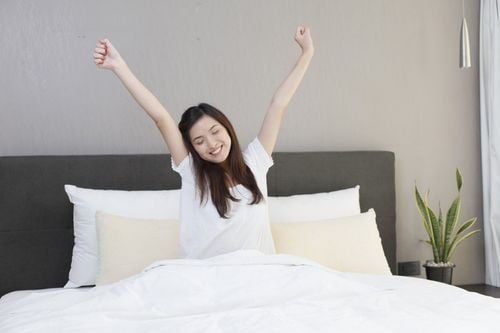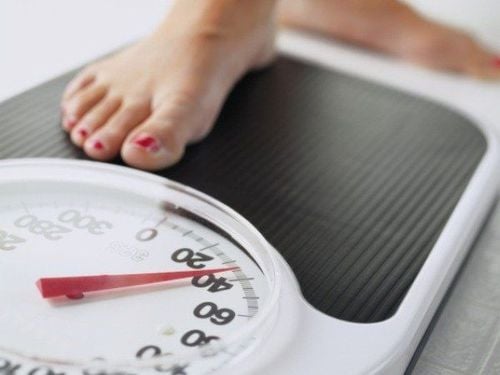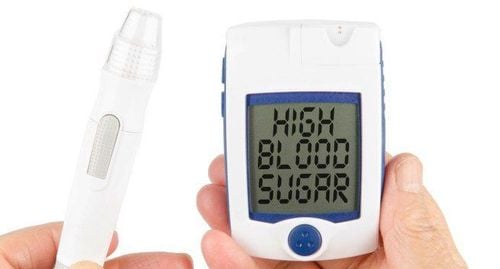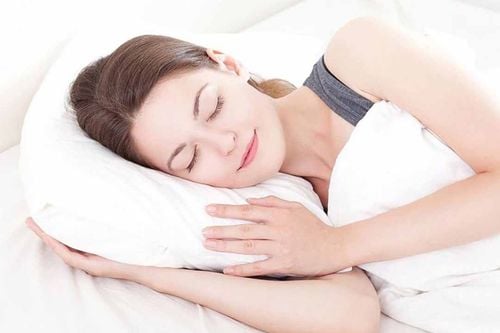This is an automatically translated article.
Regular exercise has many benefits including better sleep, which can promote relaxation, reduce anxiety and normalize your circadian rhythm. Exercise also raises your core body temperature, and when your body temperature drops, you'll feel drowsy. So is exercising before bed good or bad?
1. Is exercise before bed good or bad for sleep?
Regular exercise has many benefits, including better sleep, which can promote relaxation, reduce anxiety, and normalize the body's internal clock. Exercise also increases your internal body temperature, when it starts to drop you'll feel sleepy. It has long been believed that exercising before bed can make it difficult to fall asleep. However, according to recent studies, exercising before bed helps to sleep better. Studies have shown that exercising close to bedtime does not affect sleep quality. It's important to note the exact timing and focus on the type of exercise that doesn't affect your ability to fall asleep and stay asleep.
In a small 2020 study of 12 years, healthy men visited a laboratory on three separate nights. Study participants did 30 minutes of moderate-intensity aerobic exercise, 30 minutes of moderate-intensity resistance training, or no exercise at all. Each training session will end 90 minutes before bedtime. When the study participants slept in the lab, the researchers measured their body temperature and sleep quality to determine that a moderate-intensity evening workout had no effect on quality. sleep.
In a 2020 study, 16 men and women completed moderate-intensity exercise at different times, such as 4 or 2 hours before bedtime. also have similar results. A 2019 review analyzed the results of 23 studies on evening exercise and sleep. Assess and determine that evening exercise can improve sleep, as long as the exercise is done at a moderate intensity and not too intense, and ends more than 1 hour before bedtime.

Giải đáp tập thể dục trước khi đi ngủ có tốt không?
2. Some exercise is good for sleep
Not all exercise affects your sleep equally. That's why you must choose your exercise wisely if you want to exercise in the evening. Also consider the exact timing of your exercise. In short, if you want to exercise before bed, it's best to do it with light to moderate intensity. This level of activity can help you fall asleep faster and get better quality sleep. It is important that you complete the exercise at least 1 hour before bedtime, this will give your body enough time to relax. What exercise before going to bed? Examples of some exercises of light to moderate intensity include:
Yoga Walking Swimming Swimming Cycling Light to moderate weightlifting However, long periods of exercise should be avoided in the evening before bed. Strenuous physical activity can stimulate the nervous system and raise the heart rate excessively, making it difficult to fall asleep. Some high-intensity exercises include:
High-intensity interval training Running Jumping rope Cycling Heavy weightlifting
3. How much exercise is helpful for sleep?
To improve the quality of your sleep, spend at least 30 minutes doing moderate-intensity aerobic exercise during the day or evening. However, regular, regular daily exercise is essential to benefit ongoing sleep. Try to do moderate-intensity aerobic exercise for 150 minutes per week. You can do this by maintaining a 30-minute workout 5 days a week. If doing 30 minutes at a time is difficult to do with your time budget, you can break this time into two 15-minute exercises a day, and practice for a week 5 days.
Or if you prefer a longer workout, get at least 75 minutes of vigorous exercise each week. Just make sure not to do exercise with this type of exercise within a few hours of bedtime. Choose a sport that you love because when you really enjoy a certain exercise, it's easier to do it regularly.

Yoga là bài tập thể dục tốt cho giấc ngủ
4. What else can help you sleep well?
In addition to keeping up with regular exercise, you can take other steps to help promote your sleep health.
Keep a regular sleep schedule: Wake up and go to bed at the same time every day, including on your weekends or days off. Keeping to a fixed sleep schedule can help keep your body clock running smoothly. Avoid Electronic Devices Before Bed: Turn off TVs, laptops, smartphones and other electronic devices 30 minutes before bedtime. The lights from these devices can stimulate your brain, keeping you awake and making it harder to fall asleep. Create a relaxing routine before bed: Take a warm bath, then do some yoga or stretching poses, or meditate before bed. Reduce noise pollution: reduce noise pollution by using an air conditioner, fan, or white noise machine to drown out outside sounds that might keep you awake. Sleep at a comfortable temperature: Keep your sleeping temperature at or near 18.3°C (65°F). Make your space comfortable: Make sure your cushions and pillows are comfortable with a good height and shape. Avoid overeating before going to bed. Do not overeat within a few hours of going to bed. If you feel hungry, have a snack such as toast or a piece of fruit. Avoid using stimulants like nicotine, alcohol, and caffeine before bed. These substances can make it difficult to get quality sleep. Take a nap: Do not nap for longer than 20 to 30 minutes, especially in the afternoon. Because napping longer than this can make it difficult to fall asleep at night. In summary, exercising before bed is generally not recommended. Many people believe that exercising later in the day can make it harder to fall asleep and have a good night's sleep. On the other hand, strenuous physical activity right before bed can negatively affect your sleep. However, recent studies have shown that moderate-intensity exercise will not affect your sleep if you complete the exercise at least 1 hour before bedtime.
Please dial HOTLINE for more information or register for an appointment HERE. Download MyVinmec app to make appointments faster and to manage your bookings easily.
References: healthline.com, sleepfoundation.org, webmd.com













